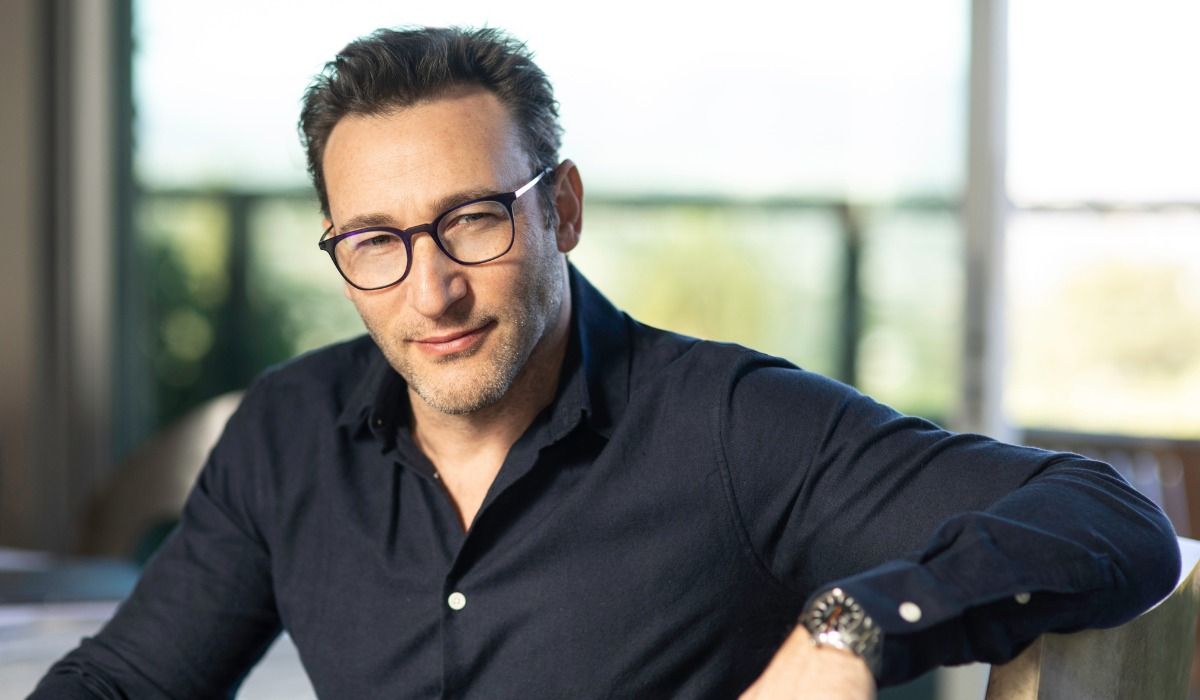A GUIDE TO FINDING YOUR PURPOSE IN LIFE

1. Search For Stories That Have Most Marked Your Life.
2. Share Them With a Person Who Can Help You.
In his book, Sinek gives precise instructions to the interviewer on how to always ask open questions, that allow you to find out what you liked or hated about an experience, what makes that story special, how the experience affected you and who you are now, what is the lesson of that experience or if, for example, it is a negative experience, what part of it disappointed you. Take notes, putting the facts on one side and the other, “You will see that there are words, phrases, ideas or themes that are repeated."
3. Identify the Themes With the Person Who Supports You.
4. Make a Draft and Define Your Why.
It can also be asked through questions that bring you closer to yourself, “If your life were a book and you were the author, how would you want the story to continue?” That is the question that Amy Purdy, a Paralympic medalist in snowboarding who lost both her legs, asked in another incredible Ted Talk.
Have these tips helped you find your purpose?
By:
Carla De La Vega and Revathi Sreejith
Contact us
Dubai Madrid London
carla@theiwei.com
+ 971 (0) 58 526 8273
+34 674 920 568
Copyright © 2024 Carla de la Vega
The Power of Awareness and
Unshakable Confidence
Through a journey of self-discovery, participants will gain awareness of the limiting beliefs that are holding them back at work. They will assess their self-esteem and identify their strengths, values, and achievements.
- Flex Your Confidence Muscle: Embracing Discomfort For Growth
- Rock Your Confidence: Why Action is The Key to Feeling More Confident
- Discovering Your Superpowers: Uncover Your Strengths, Values and Achievements
- Setting Achievable Goals: The Secret to Building Unstoppable Confidence
- Fast & Easy Decisions: How to Make Decisions With Confidence
- Navigating Imposter Syndrome
Overcoming Impostor Syndrome
This journey empowers
women to conquer imposter
syndrome, where they doubt
their achievements. Through
self-reflection, strategies, and
community support, they'll
embrace their worth and
thrive confidently in all
aspects of life.
- Unmasking Impostor Syndrome: Understanding and Recognising the Signs
- The Mindset Trap: Identifying and Reframing Negative Self-Talk
- Recognizing Your Worth: Strategies for Recognizing Value and Accomplishments
- Overcoming Perfectionism by Cultivating Self-Compassion and Self-Acceptance
- Fear of Failure and Embracing Failure: Cultivating Resilience in the Face of Setbacks
- Building the Mindset: Harnessing the Power of Affirmations and Visualization Techniques
- "Moving Forward": Developing a plan for moving beyond impostor syndrome and reaching your goals
Mastering your Emotions
In this journey, we will explore the
significance of Emotional
Intelligence in the workplace and
equip participants with practical
tools, from mindfulness to conflict
resolution, to navigate professional
challenges with grace and resilience.
- Introduction to Emotional Intelligence in the Workplace
- Unlocking Your Emotional Radar: Identifying and Validating Personal Emotions
- Emotional Regulation Techniques: Mindfulness and Deep Breathing
- ntegrating Techniques Intro Daily Work Life
- Hormonal Changes and Emotional Mastery
- Embracing Vulnerability
- Conflict Resolution and Empathy in The Workplace
- The Power of Creative Expression For Emotional Release
- Building an Emotional Support Network
Gender Equality Awareness in the Workplace: Unconscious Bias and How to Overcome them
Through this comprehensive journey, we seek to identify and address a range of unconscious biases that affect both men and women in the workplace. We investigate the root causes of these biases and provide practical strategies to overcome them. Through engaging exercises, you will gain the knowledge and confidence needed to advocate for a more equitable and inclusive
Impactful and Assertive Communication In Diverse Workplaces
It is a comprehensive journey designed to equip participants with the tools and confidence to excel in various aspects of communication, from assertive speaking to persuasive techniques and effective listening.
- Introduction
- Overcoming the Fear of Public Speaking
- Finding Your Voice: Strategies for Speaking Up and Making an Impact in Meetings
- Mastering Assertive Communication
- Empower Yourself With New Public Speaking Skills
- Techniques to Boost Confidence When Speaking in Public and Overcoming Stage Fright
- Effective Listening and Non-Verbal Communication
- The Art of Persuasion
- Adapting Communication Styles
- The Art of Storytelling
Mastering negotiation skills for women
This journey teaches negotiation basics, power dynamics, and influencing skills. You'll learn effective strategies, persuasion psychology, and how biases affect negotiations. You'll also master negotiating with different personalities and conflict resolution through mediation and collaboration.
- Introduction to Negotiation and Influencing
- Strategies for Effective Negotiation
- The Psychology of Influence
- Understanding Cognitive Biases and Their Impact
- Advanced Techniques and Practical Applications
- Resolving Conflicts Through Mediation and Collaboration
Networking and role models: the power of positive influence
Unlock the potential of professional connections and inspirational figures as we explore the synergy between networking and the influence of role models. This course is designed to empower individuals in leveraging networking opportunities while recognising the impact of positive role models on personal and professional development.
- Building a Strategic Network
- The Art of Meaningful Connections
- The Influence of Role Models
- Harnessing Mentorship for Growth
- Overcoming Networking Challenges
Thriving in the workplace-navigating resilience and well-being
This journey equips participants with essential skills in resilience, stress management, emotional intelligence, and mindfulness, fostering a culture of well-being in dynamic workplaces. By the journey's end, participants develop personalised resilience action plans and strategies for sustaining long-term success in both professional and personal spheres.
- Building Resilience Foundations
- Stress Management Strategies
- Developing a Personalised Stress Management Plan
- Cultivating Emotional Intelligence
- Mindfulness Practices for Well-Being
- Building Positive Relationships
- Navigating Change and Adaptability
- Work-Life Balance and Boundaries: Importance of Work-Life Balance For Overall Well-Being
- Sustaining Resilience For Long-Term Success

